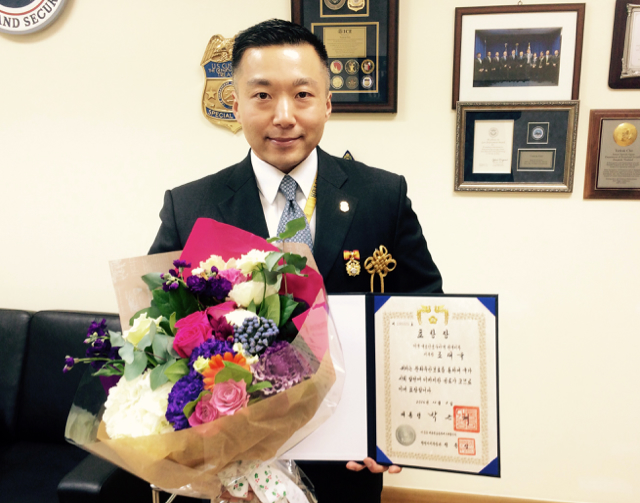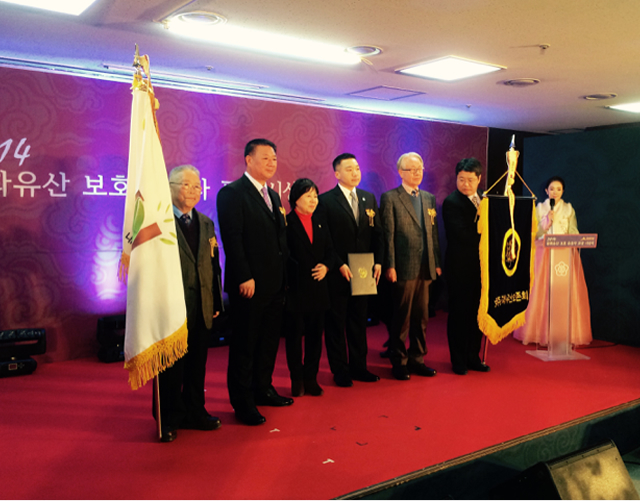Archived Content
In an effort to keep ICE.gov current, the archive contains content from a previous administration or is otherwise outdated. This information is archived and not reflective of current practice.
HSI Seoul Attaché receives presidential award
Imagine losing something so precious to you and your family that it would impact your family for generations to come. Now imagine finally finding that lost treasure after more than six decades has passed. That is exactly what happened to the people of South Korea.
In May 2014, U.S. Immigration and Customs Enforcement’s (ICE) Homeland Security Investigations (HSI) returned nine royal seals of the Korean Empire and Joseon Dynasty to the Korean people. The seals were taken from the country during the Korean War and were subsequently identified by an HSI investigation.
On Monday, at a formal ceremony at Gyeongbok Palace, HSI Seoul Attaché Taekuk Cho was presented with the Korean President’s Award for his efforts related to the repatriation of the nine national treasures. This award is the highest honor bestowed upon an individual and the highest award given by the Korean government. Cho is only the fifth non-Korean national to receive this prestigious award in Korean history.
The royal seals were found by a U.S. Marine lieutenant who served in the Korean War. The lieutenant found the seals in 1950 in a ditch near the Deoksugung Palace, which had been ransacked by Chinese and North Korean soldiers. The lieutenant’s family turned the seals over to HSI following his passing.
The nine seals include three national seals of the Korean Empire, one royal seal of the Korean Empire and five signets of the Joseon Royal Court of the Joseon Dynasty. The Korean Empire (1897-1910) succeeded the Joseon Dynasty (1392-1910).
The emperor's seal is classified as a national treasure by South Korea.
Through ICE's Office of International Affairs and the State Department, Homeland Security Investigations (HSI) has 67 attaché offices in 48 countries around the world. HSI special agents work closely with foreign law enforcement agencies and through a robust network of specialized, vetted units known as Transnational Criminal Investigative Units.




